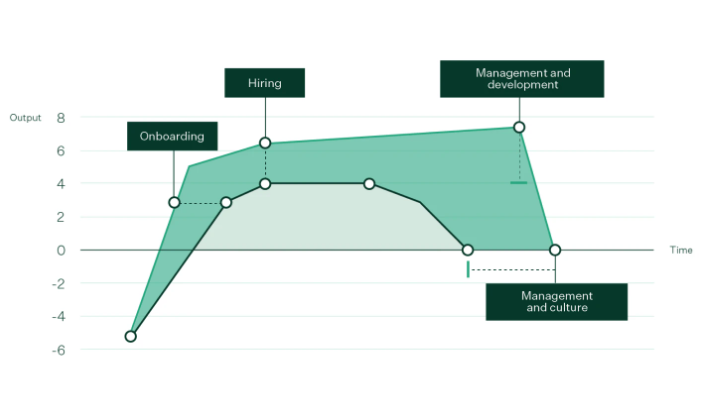6.68% of Americans make $200,000 a year or more. Of course, that is centered around certain areas. States like California, New York, Connecticut, New Jersey, Maryland, Massachusetts, etc., have a much larger percentage than the average. States like Mississippi, Alabama, Louisiana, most of the Midwest, etc., are under the average.
The Wall Street Journal had an article this week about how Walmart is struggling to fill their store manager jobs. Specifically, their General Manager job, the number one job in a Walmart store, which pays around $200,000 per year.
You would think with so few people making $200,000 a year, Walmart would have smart, ambitious folks knocking down their doors for a chance to make $200,000 per year!
But they don’t. Why?
First, most organizations tend to promote from within. Walmart is similar to this, but reality eventually hits the ceiling. An average Walmart store probably does a revenue of $50-100 million per year. The net income of those locations probably runs around $3-5M per year. There are roughly 350 employees in a Walmart store. Running a single Walmart store is like running a mid-sized enterprise business! Most SMBs in the country have a revenue well under $1M.
This means that Walmart can most likely train an hourly store employee to become a department manager but to become a General Manager, they are looking for some formal business education. You have to run a giant P&L. You have major risk factors. You need real leadership skills. In many towns, “the Walmart” is probably the biggest business in town!
College kids, on average, don’t want to leave State U for a $ 65,000-a-year job as a Manager in Training at Walmart. It’s not something you go back to the homecoming football game and brag about. Your friends took that $50k per year job with the tech firm in town as an entry-level, you make more, but they look down on you.
I know some folks are reading this and thinking, “So! You make more! You will continue to make more! You are in line to run a giant business! Who f’ing cares what others think!” Young adults do. Young adults care what other people think. If I’m frank, and I usually am, we all care what others think!
What would I do if I was at Walmart?
I love this game. It was the basis of my entire book! What would Timmy do if he ran your shop!
#1 – Stop trying to hire or require any form of formal education. Yes, you need smart folks, so give cognitive assessments. Find smart people who can learn quickly, who also have some “hustle” and “grind” to them. You probably have a ton of folks already working for you that you won’t consider. You also have to look at talent pools we tend to discount, most notably, in this case, 50 years and older, retired military commanders, etc. Walmart wants to solve this by talking new college grads into these jobs, I’d be talking failed executives into these jobs! Big salary. Big team. Big job. College grads don’t want that, your Dad does, and a retired military leader who is used to leading hundreds of soldiers does. Also, your Dad will work 60 hours a week and think it’s normal. A new grad will work a solid 40 and think it’s North Korea.
#2 – Build the Manager School. If a great GM in a Walmart environment makes them $3-5M a year, there are margin dollars to build more great GMs! Part in-person instruction. Part on the job training. Part virtual instruction. All the way in on fully engaging non-stop. Send them to manager boot camp. Make it exclusive. Bring in big-time celebrity speakers around leadership and performance. Do graduation with a gold watch.
#3 – Make it so lucrative they won’t want to leave. $200K is nice, but you need some other stuff. You need to make folks say, “F! You!” To their friends who don’t think Walmart is cool enough. What is that? I don’t stock options. Partner programs on profit sharing. Company SUV.
Here’s what I know. The profit difference between Walmart’s worse GM store and their best GM store is so big it would make you blush. It’s millions of dollars. So, making sure you hire, train, develop, and take care of the great ones is priority number one. Building the talent pipeline to successful GMs would be the job of a team of people that included great recruiting leaders, brand and marketing leaders, and technology and data leaders.
I’m not saying this is an easy job. It’s enormously difficult and complicated. But, it’s doable. The problem is, that every organization thinks the solution to their problem is new college grads. They can help, but it’s only one sliver of the full pie that is needed.

